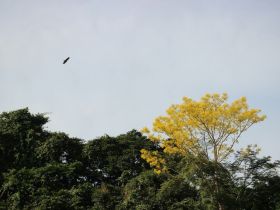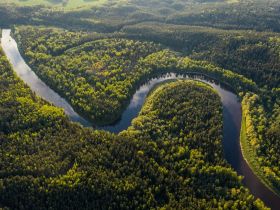OPINION: REDD+ is a partner, not a threat, for indigenous peoples
Werner Grau is a partner at law firm Pinheiro Neto, focussed on the environment, climate change and sustainability.
The rule of law in the Amazon has just been strengthened, with a landmark decision made by the organisation overseeing public prosecutors in Brazil.
The Brazilian National Committee of Prosecutors (CNMP) has suspended the Federal Prosecutors' (MPF) August 8 recommendation aiming at suspending all REDD+ projects on indigenous and traditional communities' lands.
The request had been based on a series of insubstantial claims, such as a supposed lack of scientific evidence that REDD+ projects mitigate climate change, and an alleged legal vacuum surrounding requirements for free, prior and informed consultation (FPIC) with indigenous and traditional communities.
The Committee decided last Wednesday, September 25, to put the suspension on hold for 15 days.
It is a temporary suspension that gives time for the Amazonas State government, prosecutors, and the Brazilian NBS Alliance – representing private developers – to share their views on the case with CNMP.
The Amazonas government awarded 21 concessions to private companies for REDD+ development on public land earlier this year, including some territories occupied by indigenous communities.
The concession process is in the phase of submission of documents by the winning bidders, and a concession notice issued by Amazonas provides for the implementation of FPIC in the next phase of the process.
But, by interrupting the process, the MPF has effectively prevented the adoption of the consultations it demands.
In our view, the premises for the recommendation to suspend REDD+ projects are wrong.
Satellite images and field audits prove that REDD+ projects prevent deforestation and fires, which are currently reaching alarming levels in the Amazon.
Meanwhile, the FPIC, as provided for in Convention 169 of the International Labour Organization and in the methodology for developing carbon projects, has been recognised by authorities as being fully carried out in previous projects.
Stricter than infrastructure projects
In Brazil, the rigour surrounding FPIC for carbon projects is much greater than for infrastructure projects, which could bring negative environmental and social impacts, whereas the impact of carbon projects is positive.
In public tenders for roads, hydroelectric dams and others, it is up to the granting authority to take into account the presence of indigenous communities, and then carry out appropriate consultations.
The same applies to carbon projects. In both cases, Convention 169 must be applied.
However, in the case of carbon projects in Brazil, there is also the Public Forest Concession Law, which requires companies to pass on revenues obtained from economic activities on indigenous lands.
These resources must be applied to the socioeconomic development of indigenous peoples and local communities in the region and to actions to protect conservation units and territories.
Infrastructure projects generate impacts on territories, due to the physical changes they introduce, the circulation of people from outside and the creation of a temporary and precarious economy.
In forest concessions, there is no harm to the traditional way of life of the communities that live there – in fact, carbon projects support them.
The purpose of carbon projects is precisely to value and remunerate what local populations already do, whether by protecting the forest or by increasing their traditional income-generating activities.
And to enable this to continue over time, boosting financial independence and valuing their well-being, according to the specificities of each community, is mandatory.
The methodology requires this. Constant audits monitor compliance with this demand.
If it is not complied with, the carbon credits will simply not be issued by the certifying body.
Indigenous and traditional peoples have recognised in carbon credit projects a key for their economic emancipation.
This has fomented opposition against carbon projects among several kinds of organisations.
MPF's crucial responsibility is to defend the rights of people traditionally neglected, such as the inhabitants of Brazilian forests, especially indigenous people.
This defence is carried out by monitoring and acting in specific cases in which there is a concrete violation of rights. Not in the abstract.
Some carbon project developers have asked MPF in Amazonas for guidance on the public call for proposals for REDD+ projects, but MPF chose not to do so at the time.
Carbon credits depend on the enforcement of the law and the stability and transparency resulting from it.
Authorities must exercise wisdom and sensibility when making their decisions.
That's precisely what CNMP has just done. Hopefully, there will be a final decision by CNMP supporting activities desired and freely decided by the indigenous peoples to be performed on their land, providing them with an income from preserving their land and culture.
It would be a win-win outcome.



